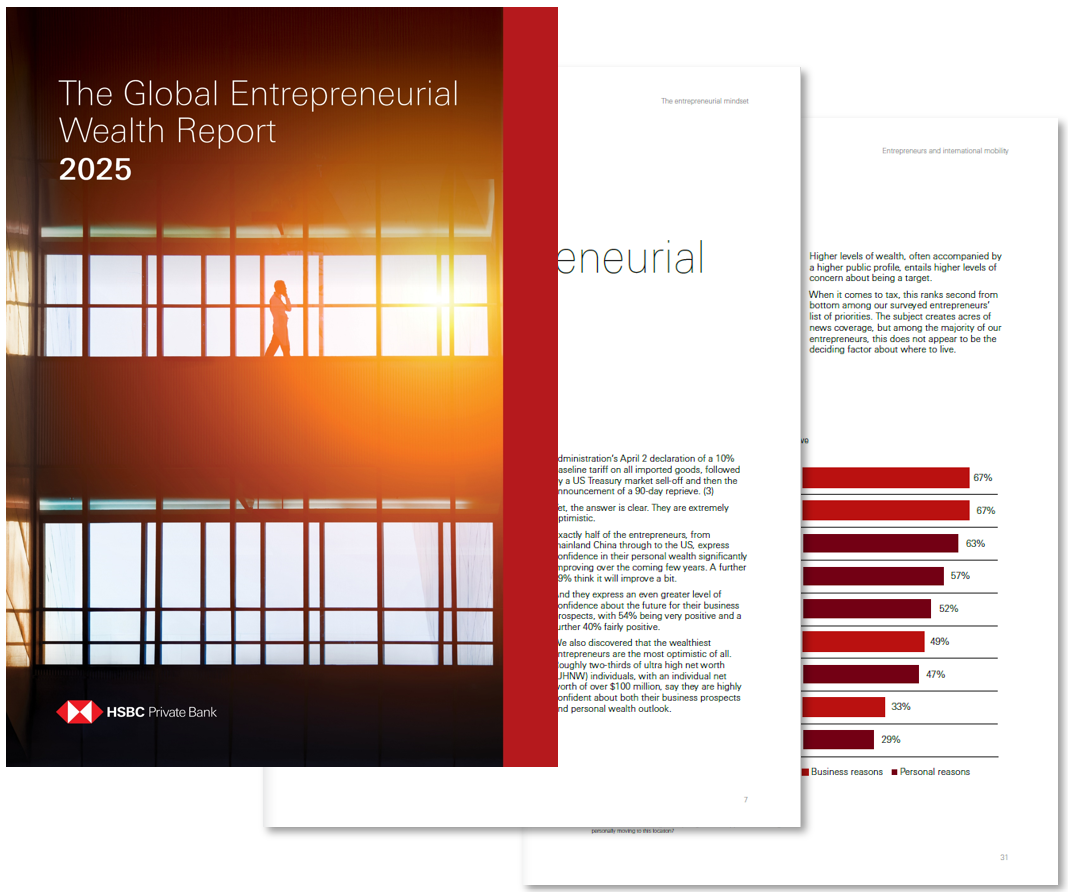Global Entrepreneurial Wealth Report 2025
Optimistic, internationally minded and highly focused on technology to drive their businesses forward. That’s what almost 3000 business owners from 15 markets told us in our annual Global Entrepreneurial Wealth Report.
From diversifying wealth, to building businesses of the future, and safeguarding legacies through the generations. Our research dives deeper on the topics that matter most to wealthy entrepreneurs around the globe – what keeps them up at night and the opportunities that are inspiring them.
An Entrepreneurial Outlook on the UK
Why are entrepreneurs in the UK so optimistic? And what’s attracting entrepreneurs from other markets to expand their businesses, invest wealth or personally move there?
We spoke to over 3000 entrepreneurs, including more than 400 in the UK, about their outlook on the UK and found that technology and AI are huge drivers in both the home-grown optimism but also what’s driving interest from outside the UK. A robust legal framework, world-class education and the cultural and social activities on offer create personal and business draws. And the confidence needed to build and grow your own business runs strong for these entrepreneurs. Uncover more insights in our UK deep dive of entrepreneurial wealth and ambition.
Previous reports

Global Wealth Hubs: Drivers of diversification
Where the world’s leading entrepreneurs are looking to capture new opportunities and managing risk

Harmony through succession planning
How prepared are Asian family-owned businesses for the future of their businesses and their wealth?

The sky’s the limit for entrepreneurs in the UAE
We explore three areas in relation to how entrepreneurs in the UAE are managing their wealth and business
Latest wealth planning insights
/uplift-images/images/Business%20meeting%20with%20man%20and%20women.jpg)
Selling your business
Where to start when you are considering selling your business
Selling a business is more than a transaction. Explore Private Bank insights to help define your path to a successful exit.
/uplift-images/images/Business%20meeting%20in%20coffee%20shop.jpg)
Planning for the future
Expertise and insight to help you plan your wealth for the future
Whether you’re looking to branch out into new financial ventures, build a long term wealth plan or simply unsure on who you need to include in the conversation, HSBC Private Bank is the partner to help you find the right path for you.
/uplift-images/images/Family%20business%20teaching%20new%20generations.jpg/_jcr_content/renditions/cq5dam.web.1280.1280.jpeg)
Passing on your Business
Where to start when you are considering selling your business
Selling a business is more than a transaction. Explore Private Bank insights to help define your path to a successful exit.



